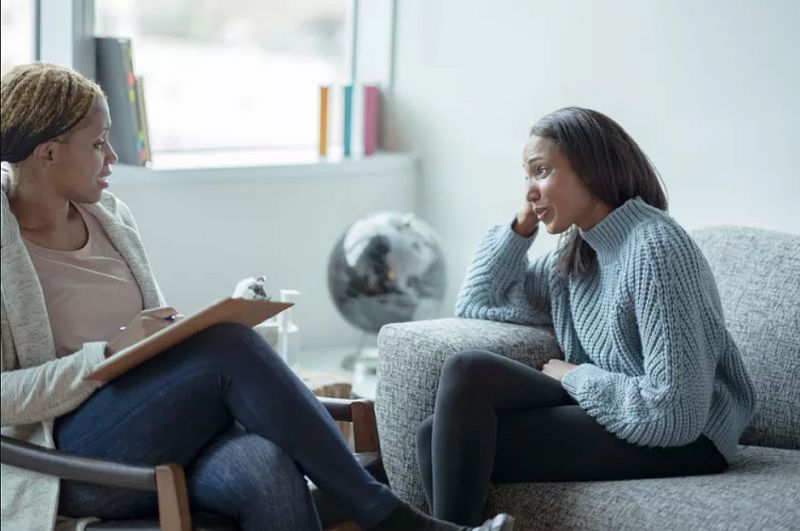Choosing a natural therapy for endometriosis
Just how do you choose a natural or complimentary therapy to help with the pain and the multitude of symptoms of endometriosis? This article gives an insight into what to look for in a natural therapy practitioner and questions to ask before seeing a practitioner
There are many complementary approaches to health, often with a confusing overlap of influences and theories, and an immense variety of methods for diagnosis and treatment. With the increasing popularity of complementary and alternative medicine, the number of therapies available has grown enormously.
The instincts you have about a therapy or a practitioner are important, as belief and trust play a significant role in healing. Make sure that your practitioner is reputable and well trained.
You are likely to respond better to a therapy if its principles fit with your ideas on well-being and you feel comfortable with the approach they are using. It is vital that you 'hit it off' with any practitioner you are going to see and bear in mind that you will be sharing some very personal information - so trust is imperative. Even after starting treatment, if things don't feel right then you need to move on and find another practitioner.
Some of the things to consider about the type of therapy to use:
- Are you happy about being touched or having a massage
- Are you OK about swallowing pills and can usually remember to take them regularly
- Are you comfortable exploring your feelings with another person
- Would you be prepared to change your diet radically
- Can you tolerate the idea of having needles stuck in you
- Are you comfortable about the practitioner manipulating your body
- Do you mind getting undressed in front of the practitioner
- Are you happy with the idea that you can use your mind to influence your health
Finding a Practitioner
Establishing a sense of rapport and trust with your practitioner is an important element of therapy if any benefits are to be derived from the treatment. Another key factor is of course, finding a competent practitioner.
Finding a good practitioner may be
simply a matter of trial and error, and there are many people who prefer to
rely on work-of-mouth recommendations.
However, this approach is not necessarily reliable.
Training for alternative practitioners
can range from as little as a correspondence course lasting only one weekend to
three to four years of full or part time degree study. There are many unscrupulous people out there who are all too ready to make a quick buck from people are feeling desperate. Your health is important and you need the best treatment available and need confidence in what is being advised.
Make sure that the therapist/practitioner you are considering is adequately trained and reputable.
Before embarking on any course of therapy you should ask your practitioner these questions:
- What are the practitioners’ qualifications? What sort of training was undertaken, and for how long?
- For how many years has the practitioner been in practise?
- Is the practitioner registered with a recognised professional organisation, and does that organisation have a public directory?
- Does the organisation have a code of practise, specifying the professional code of conduct?
- Is treatment available on referral by your doctor? Some therapies, such as chiropractic, osteopathy and acupuncture, are becoming accepted into mainstream medicine.
- Can you claim for the treatment through your health insurance, if you have it?
- What is the cost of treatment?
- How many treatments might you expect to require?
Once again - trust and empathy are important with your practitioner, and treatment is unlikely to succeed without it. Treatment is often conducted on a one-to-one basis, so trust is imperative.

About the Author
Hi, I am Carolyn Levett, the Founder here at endo-resolved - I am an Integrative Health Coach having studied nutrition, naturopathy and aromatherapy as well as being a published author of three endometriosis books. I used to suffer from severe endometriosis and was fortunate to be able to regained my health and recover from this disease with the support of nutrition, natural therapies and lots of determination.
My motivation is to help other women with endometriosis to heal their bodies so they may start to overcome this awful disease without having to totally rely on toxic drugs and surgeries which can cause further damage - with healing thoughts, Carolyn.
Naturopathic Medicine for the Management of Endometriosis, Dysmenorrhea, and Menorrhagia: A Content Analysis
https://pubmed.ncbi.nlm.nih.gov/30383387/?from_term=naturopathy+and+endometriosis&from_pos=1
Comparative Efficacy and Safety of Traditional Chinese Patent Medicine for Endometriosis:
Effects of Acupuncture for the Treatment of Endometriosis-Related Pain: A Systematic Review and Meta-Analysis
https://pubmed.ncbi.nlm.nih.gov/29077705/?from_term=acupuncture+and+endometriosis&from_pos=1
Systematic Review and Meta-Analysis of Complementary Treatments for Women With Symptomatic Endometriosis
https://pubmed.ncbi.nlm.nih.gov/29944729/?from_term=acupuncture+and+endometriosis&from_pos=2








